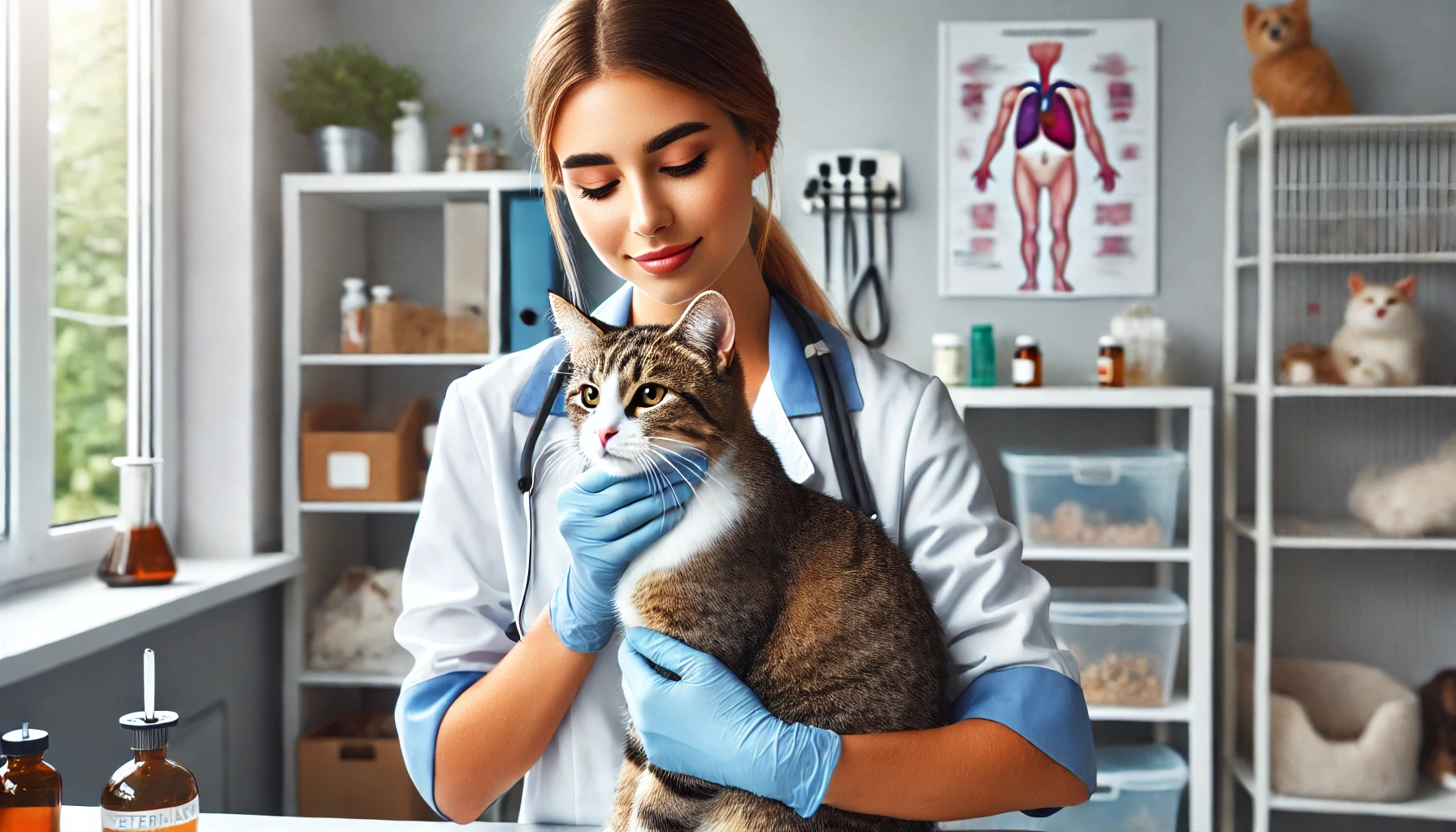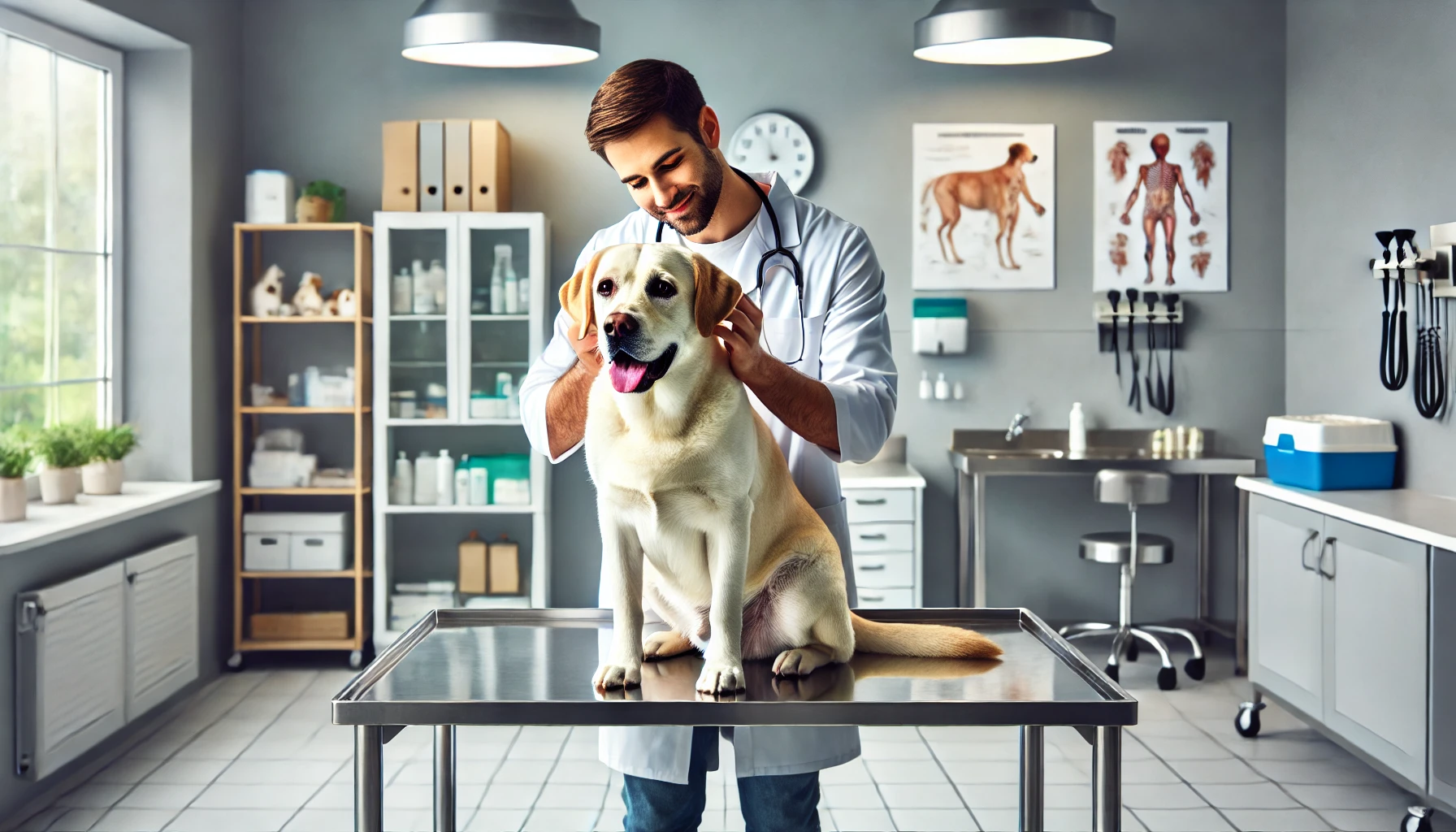Vet Check-ups: Ensuring Your Pet's Health
Regular veterinary check-ups are essential for your pet’s health. They help with early detection of health issues, preventive care (like vaccines and parasite prevention), weight management, and dental health. Check-ups typically include a full physical exam, vaccinations, parasite screening, blood tests, and advice on nutrition and behavior. Healthy adult pets should have a check-up once a year, while puppies, kittens, and senior pets may need more frequent visits.
As a pet owner, one of the most crucial steps you can take to ensure your pet’s health and well-being is scheduling regular veterinary check-ups. Routine visits to the vet aren’t just for when your pet is sick—they are essential for maintaining their overall health, detecting potential issues early, and preventing serious conditions down the line. In this article, we’ll explore the importance of regular veterinary check-ups, what to expect during a visit, and how these visits contribute to your pet’s longevity.
Why Regular Vet Check-ups Matter
Just like humans, pets need preventive care to maintain optimal health. While pets can’t communicate when something is wrong, veterinarians are trained to spot subtle signs that might otherwise go unnoticed. Regular check-ups offer numerous benefits, from disease prevention to early diagnosis of hidden health issues.
1. Early Detection of Health Issues Many pet health problems—such as heart disease, kidney disease, and certain types of cancers—can develop slowly and without obvious symptoms. Regular check-ups allow your vet to identify potential issues before they become serious or life-threatening. Early detection can result in more effective treatments, a better prognosis, and less invasive procedures.
2. Preventive Care A big part of routine vet visits is preventive care. Vaccinations, flea and tick treatments, and parasite prevention are all part of maintaining a pet’s health. Your veterinarian will assess your pet’s risk factors and recommend appropriate treatments to protect them from common ailments, such as heartworms, Lyme disease, and rabies. Preventive care also reduces the chances of systemic health issues developing in the future.
3. Maintaining a Healthy Weight Obesity is one of the most common health issues affecting pets, particularly dogs and cats. Overweight pets are at a higher risk of developing arthritis, diabetes, cardiovascular disease, and other complications. Regular vet visits allow your veterinarian to assess your pet’s weight and body condition, offering guidance on portion control, nutrition, and exercise to help maintain a healthy weight.
4. Dental Health Dental disease is common in pets, especially as they age. It can lead to gum disease, tooth loss, and other systemic health issues, such as infections that spread to the heart or kidneys. During check-ups, your vet will examine your pet’s teeth and gums, offering advice on proper dental care and recommending professional cleanings if necessary. Left untreated, dental issues can become life-threatening.
What Happens During a Regular Veterinary Check-up?
A veterinary check-up typically includes a full physical examination and a series of tests to assess your pet's overall health. Here’s what you can expect:
1. Physical Examination Your vet will start by examining your pet from head to tail. This includes checking their eyes, ears, mouth, skin, and coat for signs of abnormalities, as well as listening to their heart and lungs for any irregularities. Your vet will also palpate your pet’s abdomen to check for any discomfort or unusual masses.
2. Vaccination Updates Depending on your pet’s age and vaccination history, the vet will update any necessary vaccines, such as those for rabies, distemper, and parvovirus for dogs, or feline leukemia and feline distemper for cats. They may also recommend booster shots for vaccines that are essential for your pet's protection.
3. Parasite Prevention Your veterinarian will check for any signs of external parasites (fleas, ticks, mites) and internal parasites (worms). They may recommend preventative treatments to keep your pet safe from these common pests.
4. Blood Tests and Screening For pets over a certain age, blood tests may be recommended to check for underlying issues, such as kidney or liver disease, thyroid problems, or diabetes. These tests can provide valuable insights into your pet’s internal health and help detect problems before they cause noticeable symptoms. Early stages of disease, including kidney disease or blood sugar issues, can often be managed if caught early.
5. Nutritional and Weight Assessments Your vet will assess your pet’s weight and provide guidance on feeding, portion control, and the best diet for their age, breed, and activity level. They will also give advice on exercise routines to help keep your pet healthy and prevent obesity-related health issues.
6. Behavior and Mental Health Check A vet check-up also includes discussions about your pet’s behavior and emotional well-being. If you notice changes in your pet’s behavior—such as increased anxiety, aggression, or lethargy—your vet can help determine if these changes are related to a medical condition or if behavioral modifications are needed. Mental health checks are as important as physical exams for long-term quality of life.

How Often Should You Schedule Vet Check-ups?
The frequency of veterinary check-ups depends on your pet’s age, breed, and health status. As a general rule, healthy adult pets should have check-ups at least once a year. However, puppies, kittens, senior pets, or pets with chronic health conditions may require more frequent visits.
For Puppies and Kittens: Young pets typically need several visits during their first year, including vaccinations, deworming, and general health assessments. These visits are crucial to ensure their immune system is developing properly.
For Adult Pets: Healthy adult pets generally need a check-up once a year. During this time, your vet will assess your pet’s overall health and make any necessary adjustments to their care.
For Senior Pets: Older pets (typically those over the age of seven) should visit the vet every six months. At this stage, they may be more prone to age-related conditions, such as arthritis, kidney disease, or cardiovascular disease. More frequent check-ups help to catch issues early and improve their quality of life.
Take the first step in ensuring your pet’s health and longevity by scheduling a regular veterinary check-up today! At UnitedPetClub.com, we provide a range of pet care products to keep your furry friend in top shape between visits. From flea and tick prevention to dental care supplies, we’ve got you covered. Visit our website for tips on preventive care and to learn more about keeping your pets safe and healthy!


No Comments ( as of 3/13/2025 9:30:45 PM )